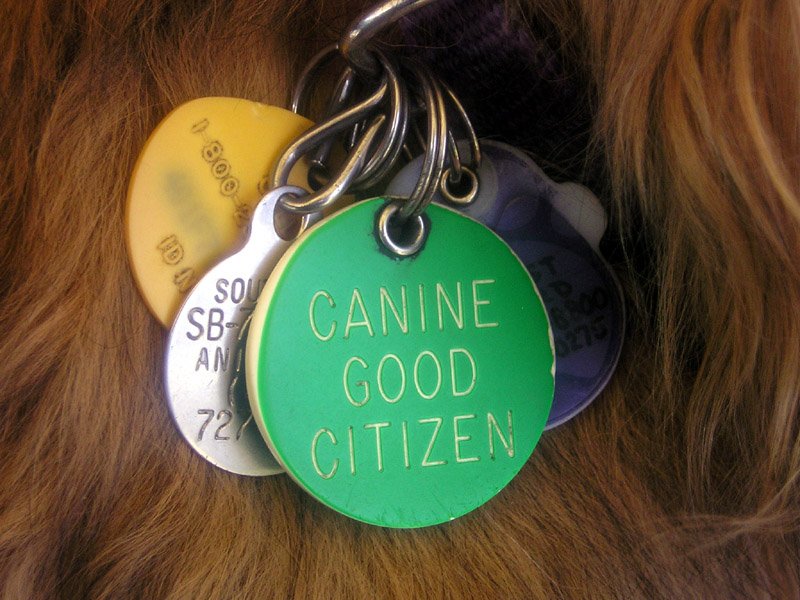Animal Control
The Township is no longer licensing dogs. Instead, owners must have either a personalized tag with contact information or microchip their dogs. This is so that we may still locate you as the owner. 
It is important that your dog be tagged somehow, either personal tag or microchip. In the event that your pet should go missing, the municipality will be able to locate you as the owner. In addition, our animal control provider spends a considerable amount of time investigating and caring for lost animals.
Note that residents may keep a maximum of three (3) dogs which are over three (3) months at any one (1) location, unless a kennel license is obtained.
Wildlife Control
We share the Township with many forms of wildlife that have adapted to our environment. Common wildlife includes squirrels, birds, raccoons, skunks and foxes. Because food and shelter are plentiful, and natural predators are limited, wildlife will continue to live near us. If we learn to share the environment and reduce problems by getting rid of sources of food and shelter on our properties, animals will make their way to a more suitable home.
PLEASE NOTE that the Township does not offer a service to pick up or otherwise deal with nuisance or injured wildlife on private property. In cases where there is a direct and immediate threat to human life, we suggest that residents contact the Police. Otherwise, if the wildlife is not moving along on its own or you desire to have it removed, you may wish to contact a private, local wildlife control service.
In addition, you may contact the Ministry of Natural Resources at 1-800-667-1940 for more information on how to deal with wildlife on your property. As well, The Ontario SPCA and Humane Society has a series of "Living with Urban Wildlife" factsheets. These factsheets provide general information about urban wildlife, how to prevent conflict with them and what to do when problems arise. You can also obtain a brochure from the Township Office.
Coyotes
In response to inquiries about the increased presence of coyotes within the county of Oxford, an information package has been developed for all residents. Although the main focus is toward rural properties, there are also some tips for urban homeowners and how to ensure that your property is not attracting this type of wildlife.
This package includes valuable information on behavioural patterns of coyotes and how to protect livestock against them. Also included is local contact information for two organizations, Ontario Federation of Anglers and Hunters and the Ontario Fur Managers Federation. Both of these groups can be very helpful for property owners that will allow hunting and/or trapping on their land.
